Listeners:
Top listeners:
-
play_arrow
Kapital FM 92.9 The Station that Rocks!
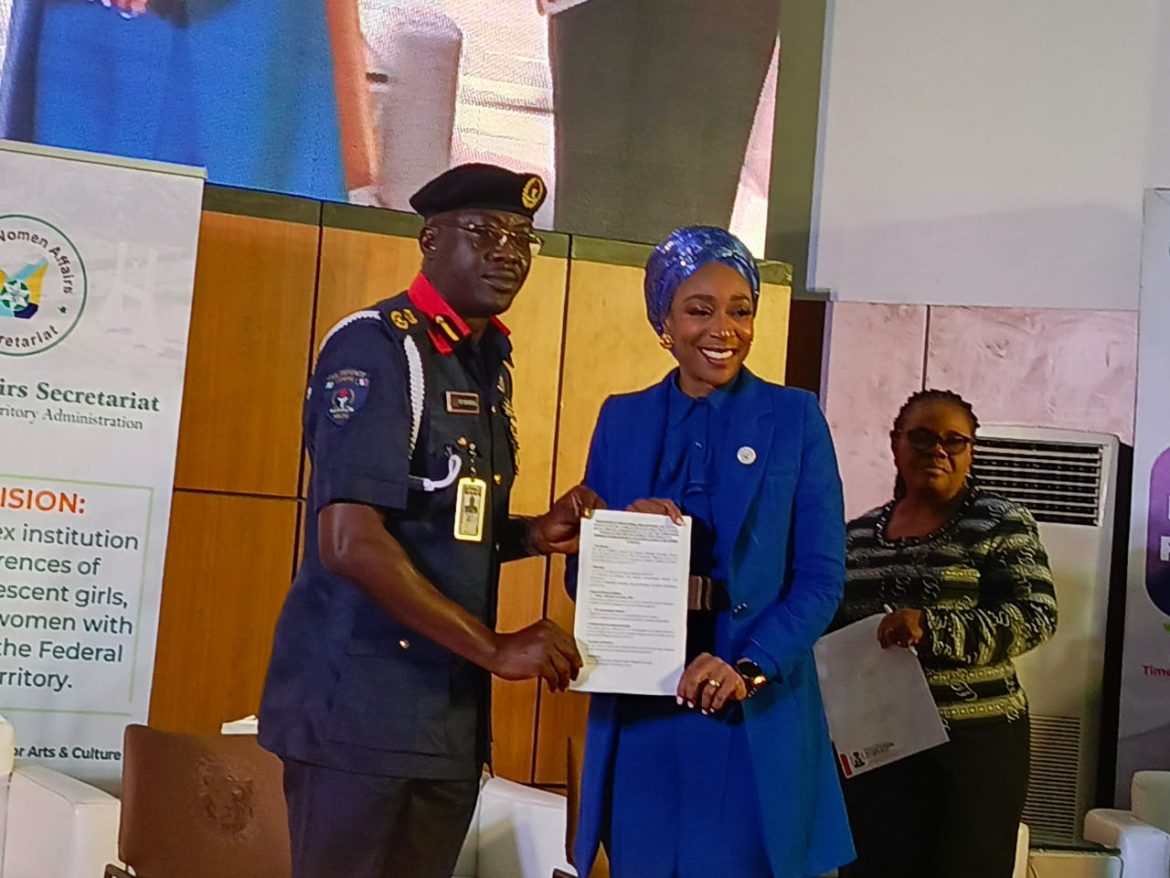
Towards ending some cultural and age long stereotypes, the FCT Women Affairs Secretariat has signed a memorandum of understanding, MOU, with the Nigeria Security and Civil Defense Corps, NSCDC on the protection and security of women in the nation’s Capital.
On the occasion in Abuja, the Pioneer Mandate Secretary, FCT Women Affairs Secretariat, Dr Adedayo Benjamins- Laniyi also advocated the inclusion of women in gathering intelligence on security matters within their domains towards building a more secured society.
The initiative is being champoined in collaboration with the NSCDC, FCTA Security Department, and Centre For Gender Security Studies and Youths Advancement, University of Abuja.
She explained that engaging with community leaders to promote gender equality and the importance of women in security roles can help break traditional barriers and stereotype mentalities.
Dr Adedayo, who maintained that “no woman should be left behind,” said the involvement of women in providing emotional intelligence will empower them to contribute their quota to ensuring peace, security, and stability in the society.
She noted that the measure would create an enabling environment for the women to be trained in the area of conflict resolution, as well as giving them the opportunity to amplify their voices on issues of national interest.
Dr Laniyi added that the Women Affairs Secretariat is concerned about the women and how to help them develop their full potential through a series of policies and programmes designed to renew the hope of the citizens.
“Empowerment through Education and Training: We must train and provide women with the necessary skills and knowledge to participate actively in security discourse and action, conflict resolution, community policing, and cybersecurity to enable women to contribute meaningfully to our security efforts and also leveraging technology to secure our FCT and Nigeria at Large”.
“Positioning Women as Drivers of Solutions and Interventions To tackle the challenges we face, women must not only be included but positioned at the forefront of our security interventions.
“Today, we gather not only to deliberate but to catalyze action on one of the most pressing issues of our time: the security of women in the FCT.
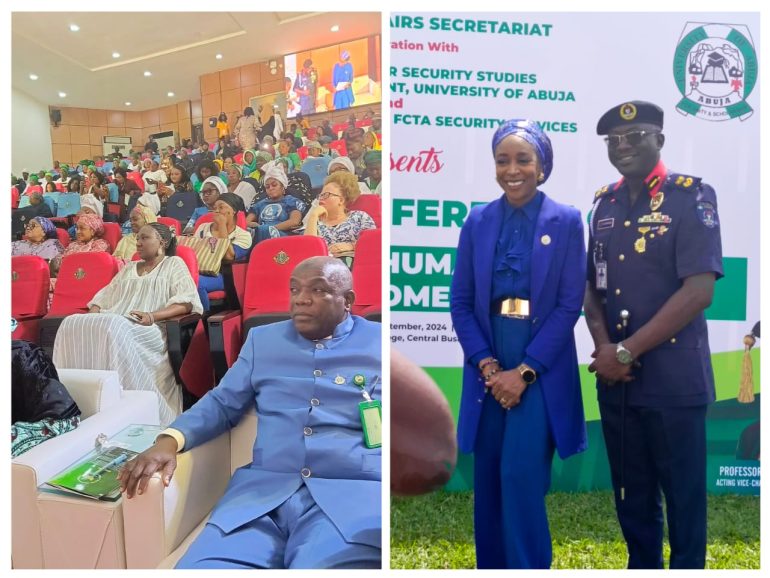
“Women in the FCT have always been on the frontline of nurturing and safeguarding our society. We recognize that their role in addressing insecurity goes far beyond the domestic sphere. “
“Women bring unique perspectives and solutions that are essential to comprehensive security strategies. As primary caregivers, educators, and community leaders, women possess invaluable insights into the root causes of insecurity and the means to address them effectively.” Laniyi noted.
On his part, the NSCDC FCT Commandant, Dr Olusola Odumosu who explained that Gender and Human Security is all encompassing, pointed out that there was need to put in place measures and policies to protect women’s right as it relates to kidnapping, sexual based violence, insecurity among others.
Dr Odumosu added that women residing in rural areas encounter more obstacles than those in urban and metropolitan regions, gave an indication that the MOU would help the corps to mediate on issues that affects women, ranging from cultural beliefs, domestic abuse, polygamy, child marriage, female genital mutilation, lack of access to the critical resources of credit, land and inheritance cases”.
” The MOU signed today is a plus to the FCT women. It will not only allow them to be economically thriving, but because I know the Mandate Secretary is doing her best to make their lives better; it will also ensure their physical security. “
“It is pertinent to note that human security with a focus on women goes beyond the traditional notions of National Security that involves state interests and military power. It prioritizes the safety and well-being of women who face abject poverty in want of adequate food, clean water, sanitation and healthcare. “
“Some challenges women face are: Gender-based violence, sexual abuse, limited access to education and employment opportunities, marginalisation, inadequate healthcare, discriminatory laws and social norms, insecurity and fear of violence”, Odumosu said.
Contributing to the Director of FCT Security Services, Dr. Adams Gwari said women involvement in gathering intelligence and mediating to ensure peace will tackle insecurity and change narratives in the territory.
Using family structure as illustration, Dr Gwari said, ” Women notice when a child has potentialites faster than men.”
“So, we are looking at it from that perspective, that women can notice security challenges faster … we are talking about the non- kinetic approach more in addressing security challenges. “
“So is not all about flexing muscles. It’s all about intellect. We feel and believe that bringing in women in this direction will change the narratives, ” Dr Gwari said.
Remi Johnson, Edited By Shakira Alabi
Written by: Editorial Team
#kapitalfm92.9 FCT MoU NSCDC Women Security
Similar posts
Recent Posts
- Flooding : FG Commences Nationwide Overhaul Of Dams Infrastructure
- FG Approves Conversion Of 10,000 Commercial Vehicles To CNG
- Mining : Alake Harps On Collaboration With National Boundary Commission
- NEPC, NDPC Partner To Safeguard Registered Exporters Data
- Plan International Nigeria Takes Step To Ensure Implementation Of Girls Rights
Recent Comments
No comments to show.-

Kapital Kruise
With Oyinye Agiriga
Unwind and Energize: Join us on an Electrifying Journey as Kapital FM 92.9 Abuja Presents the After-Work Extravaganza! Tune in from 3PM to 9PM and Let the Vibrant Rhythms Ignite Your Spirit. Welcome to the twilight hours...
close Top popular
Chart
-
-
play_arrow
Sunshine Tommy Blues
-
play_arrow
-
-
play_arrow
Red Frank Lee
-
play_arrow
-
-
play_arrow
Eclipse Donna May
-
play_arrow
-
Copyright Kapital FM 92.9 Abuja - The Station that Rocks!



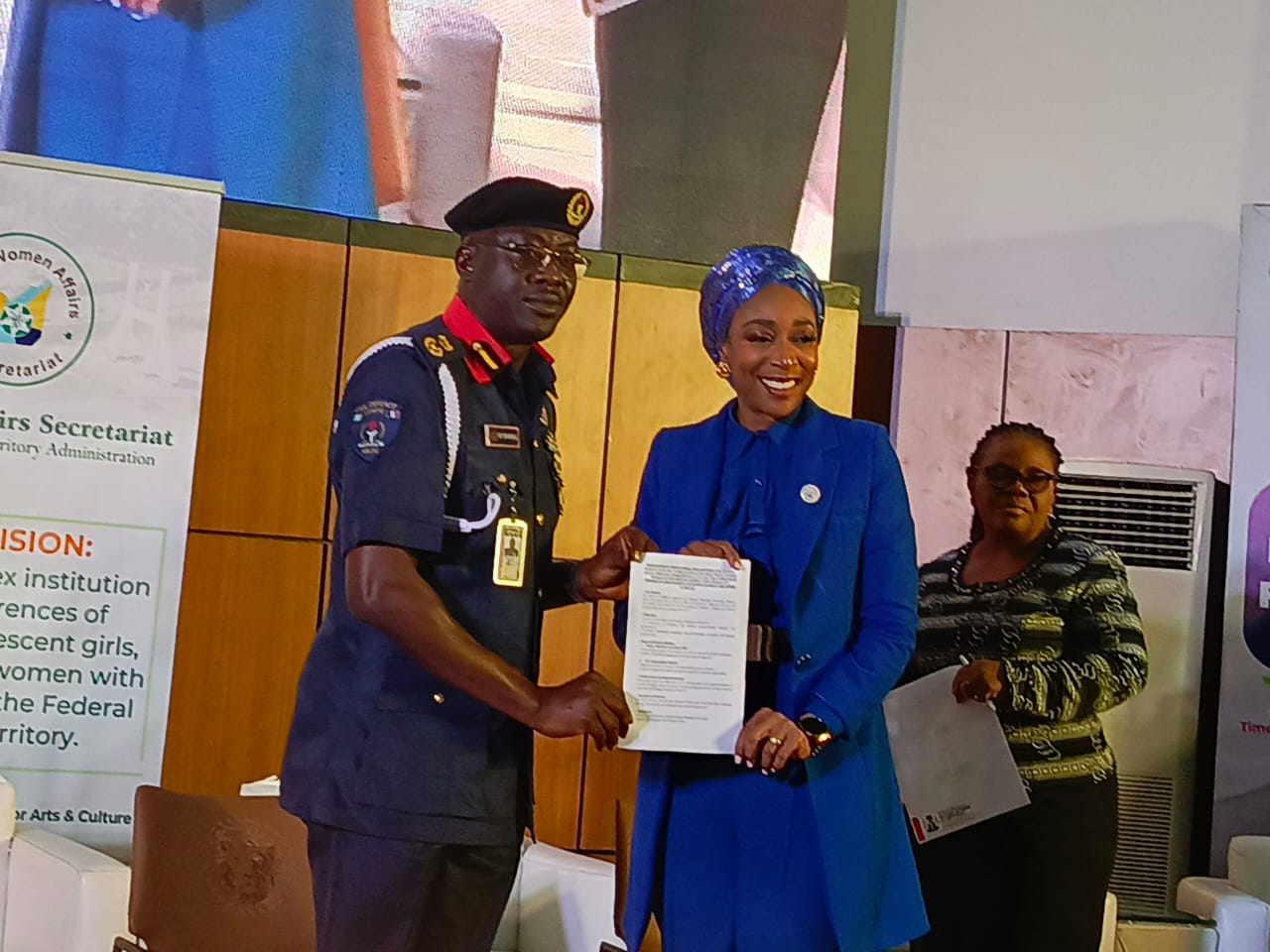
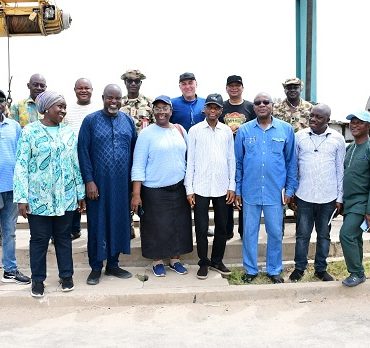
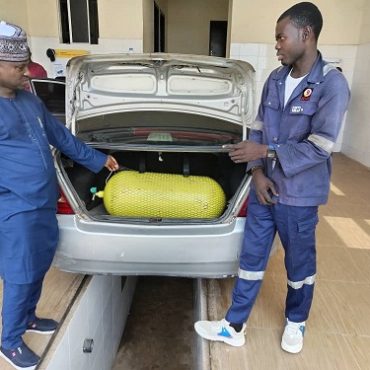




Post comments (0)